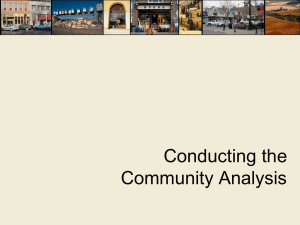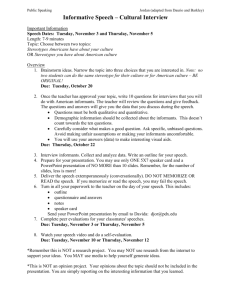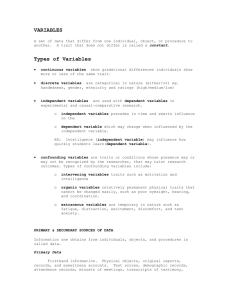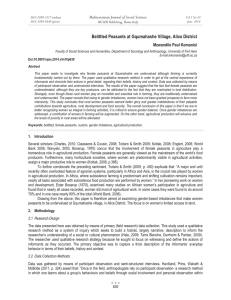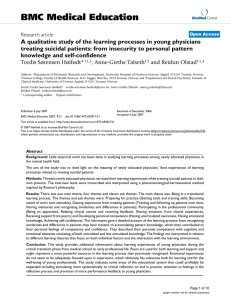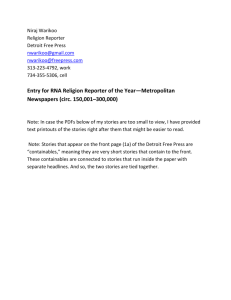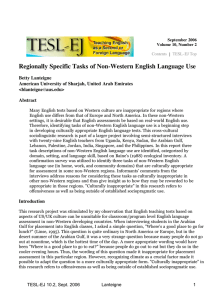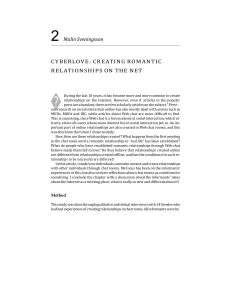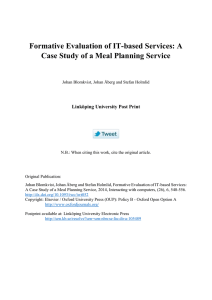2011 Summer Day One Session 01 Teaching as
advertisement
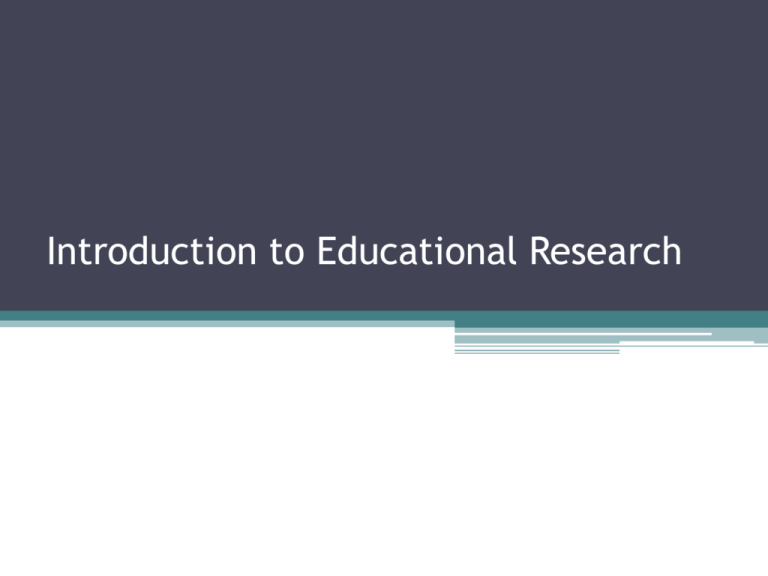
Introduction to Educational Research Making a decision about teaching. • What is one decision you have made recently in your teaching? • How did you make this decision? • What evidence did you use? • How did you know it was a good decision? • How many times do you have to make a decision in your teaching? • What does it mean to use “experience” in this context? ALL aspects of teaching and learning are RESEARCH issues. Good teaching involves ongoing action research: • Observations from ones' own experience and those of others (formal and informal), • process modelling, • hypothesising and experimenting (purposeful change), • data collection and analysis, • modification and refinement of models, • all leading to a new cycle of reflection and action. ALL aspects of teaching and learning are RESEARCH issues. • For most good teachers this occurs almost subconsciously. Knowledge about teaching and learning is generally implicit. • Making the implicit explicit is the basis of much education research. • Detailing, explaining, and organising the process in a way others can understand and follow leads to new insights for one's own practice and assists the action research of others. ALL aspects of teaching and learning are RESEARCH issues. • Impressions are not data. • Guesses are a poor basis for changes that may influence people’s lives. • Idiosyncratic new strategies may do damage to some or many of the students. What other choices are there? • Does a new strategy actually work, and how will you know? • How do you monitor a new strategy to make continuous improvements? Identifying a research question • Personal experience: “that’s odd” moment • Observations: realising something over time, and wondering why • Investigation: reading reveals something inconsistent. • Conversation with others: shows up variations in practice or experience. Is the truth out there? • How you approach your research will reflect how you see the world and the knowledge within in: your Epistemology. Two perspectives on knowledge. Positivist • A perspective that defines knowledge as something that exists independently in the world, and can be discovered through careful observation. • Since it exists independently, knowledge is verifiable and stable. Two perspectives on knowledge. Interpretivist (constructivist) • A perspective that defines knowledge as dependent upon human perception, and thus as never free from such influences as culture, history and belief. • Because perceptions vary, multiple realities exist simultaneously. Quantitative Mode Qualitative mode Assumptions Assumptions Social facts have an objective reality Primacy of method Variables can be identified and relationships measured Etic (outside's point of view) Purpose Generalisability Prediction Causal explanations Reality is socially constructed Primacy of subject matter Variables are complex, interwoven, and difficult to measure Emic (insider's point of view) Purpose Contextualization Interpretation Understanding actors' perspectives Quantitative Mode Qualitative mode Approach Approach Begins with hypotheses and theories Manipulation and control Uses formal instruments Experimentation Deductive Component analysis Seeks consensus, the norm Reduces data to numerical indices Abstract language in write-up Researcher Role Detachment and impartiality Objective portrayal Ends with hypotheses and grounded theory Emergence and portrayal Researcher as instrument Naturalistic Inductive Searches for patterns Seeks pluralism, complexity Makes minor use of numerical indices Descriptive write-up Researcher Role Personal involvement and partiality Empathic understanding Axioms About Positivist Paradigm (Quantitative) Naturalist Paradigm (Qualitative) The nature of reality Reality is single, tangible, and fragmentable. Realities are multiple, constructed, and holistic. The relationship of knower to the known Knower and known are independent, a Knower and known are interactive, dualism. inseparable. The possibility of generalization Only time- and context-bound working Time- and context-free generalizations hypotheses (idiographic statements) are (nomothetic statements) are possible. possible. The possibility of causal linkages All entities are in a state of mutual There are real causes, temporally simultaneous shaping, so that it is precedent to or simultaneous with their impossible to distinguish causes from effects. effects. The role of values Inquiry is value-free. Inquiry is value-bound. Research with Subjects (Quantitative) Research with Informants (Qualitative) 1. What do I know about a problem that will allow me to formulate and test a hypothesis? 1. What do my informants know about their culture that I can discover? 2. What concepts can I use to test this hypothesis? 2. What concepts do my informants use to classify their experiences? 3. How can I operationally define these concepts? 3. How do my informants define these concepts? 4. What scientific theory can explain the data? 4. What folk theory do my informants use to explain their experience? 5. How can I interpret the results and report them in the language of my colleagues? 5. How can I translate the cultural knowledge of my informants into a cultural description my colleagues will understand?

